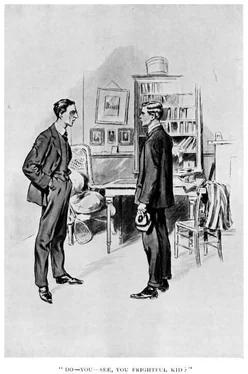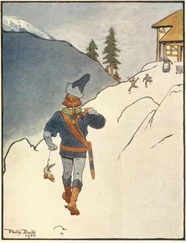Pelham Wodehouse - Mike
Здесь есть возможность читать онлайн «Pelham Wodehouse - Mike» весь текст электронной книги совершенно бесплатно (целиком полную версию без сокращений). В некоторых случаях можно слушать аудио, скачать через торрент в формате fb2 и присутствует краткое содержание. Жанр: Классическая проза, Юмористическая проза, на английском языке. Описание произведения, (предисловие) а так же отзывы посетителей доступны на портале библиотеки ЛибКат.
- Название:Mike
- Автор:
- Жанр:
- Год:неизвестен
- ISBN:нет данных
- Рейтинг книги:4 / 5. Голосов: 1
-
Избранное:Добавить в избранное
- Отзывы:
-
Ваша оценка:
- 80
- 1
- 2
- 3
- 4
- 5
Mike: краткое содержание, описание и аннотация
Предлагаем к чтению аннотацию, описание, краткое содержание или предисловие (зависит от того, что написал сам автор книги «Mike»). Если вы не нашли необходимую информацию о книге — напишите в комментариях, мы постараемся отыскать её.
Mike — читать онлайн бесплатно полную книгу (весь текст) целиком
Ниже представлен текст книги, разбитый по страницам. Система сохранения места последней прочитанной страницы, позволяет с удобством читать онлайн бесплатно книгу «Mike», без необходимости каждый раз заново искать на чём Вы остановились. Поставьте закладку, и сможете в любой момент перейти на страницу, на которой закончили чтение.
Интервал:
Закладка:
The melancholy youth put up the figures, 54, 5, 12, on the board.
Mike, as he walked out of the pavilion to join Bob, was not conscious of any particular nervousness. It had been an ordeal having to wait and look on while wickets fell, but now that the time of inaction was at an end he felt curiously composed. When he had gone out to bat against the M.C.C. on the occasion of his first appearance for the school, he experienced a quaint sensation of unreality. He seemed to be watching his body walking to the wickets, as if it were some one else’s. There was no sense of individuality.
But now his feelings were different. He was cool. He noticed small things—mid-off chewing bits of grass, the bowler re-tying the scarf round his waist, little patches of brown where the turf had been worn away. He took guard with a clear picture of the positions of the fieldsmen photographed on his brain.
Fitness, which in a batsman exhibits itself mainly in an increased power of seeing the ball, is one of the most inexplicable things connected with cricket. It has nothing, or very little, to do with actual health. A man may come out of a sick-room with just that extra quickness in sighting the ball that makes all the difference; or he may be in perfect training and play inside straight half-volleys. Mike would not have said that he felt more than ordinarily well that day. Indeed, he was rather painfully conscious of having bolted his food at lunch. But something seemed to whisper to him, as he settled himself to face the bowler, that he was at the top of his batting form. A difficult wicket always brought out his latent powers as a bat. It was a standing mystery with the sporting Press how Joe Jackson managed to collect fifties and sixties on wickets that completely upset men who were, apparently, finer players. On days when the Olympians of the cricket world were bringing their averages down with ducks and singles, Joe would be in his element, watching the ball and pushing it through the slips as if there were no such thing as a tricky wicket. And Mike took after Joe.
A single off the fifth ball of the over opened his score and brought him to the opposite end. Bob played ball number six back to the bowler, and Mike took guard preparatory to facing de Freece.
The Ripton slow bowler took a long run, considering his pace. In the early part of an innings he often trapped the batsmen in this way, by leading them to expect a faster ball than he actually sent down. A queer little jump in the middle of the run increased the difficulty of watching him.
The smiting he had received from Burgess in the previous over had not had the effect of knocking de Freece off his length. The ball was too short to reach with comfort, and not short enough to take liberties with. It pitched slightly to leg, and whipped in quickly. Mike had faced half-left, and stepped back. The increased speed of the ball after it had touched the ground beat him. The ball hit his right pad.
“’S that?” shouted mid-on. Mid-on has a habit of appealing for l.-b.-w. in school matches.
De Freece said nothing. The Ripton bowler was as conscientious in the matter of appeals as a good bowler should be. He had seen that the ball had pitched off the leg-stump.
The umpire shook his head. Mid-on tried to look as if he had not spoken.
Mike prepared himself for the next ball with a glow of confidence. He felt that he knew where he was now. Till then he had not thought the wicket was so fast. The two balls he had played at the other end had told him nothing. They had been well pitched up, and he had smothered them. He knew what to do now. He had played on wickets of this pace at home against Saunders’s bowling, and Saunders had shown him the right way to cope with them.
The next ball was of the same length, but this time off the off-stump. Mike jumped out, and hit it before it had time to break. It flew along the ground through the gap between cover and extra-cover, a comfortable three.
Bob played out the over with elaborate care.
Off the second ball of the other man’s over Mike scored his first boundary. It was a long-hop on the off. He banged it behind point to the terrace-bank. The last ball of the over, a half-volley to leg, he lifted over the other boundary.
“Sixty up,” said Ellerby, in the pavilion, as the umpire signalled another no-ball. “By George! I believe these chaps are going to knock off the runs. Young Jackson looks as if he was in for a century.”
“You ass,” said Berridge. “Don’t say that, or he’s certain to get out.”
Berridge was one of those who are skilled in cricket superstitions.
But Mike did not get out. He took seven off de Freece’s next over by means of two cuts and a drive. And, with Bob still exhibiting a stolid and rock-like defence, the score mounted to eighty, thence to ninety, and so, mainly by singles, to a hundred.
At a hundred and four, when the wicket had put on exactly fifty, Bob fell to a combination of de Freece and extra-cover. He had stuck like a limpet for an hour and a quarter, and made twenty-one.
Mike watched him go with much the same feelings as those of a man who turns away from the platform after seeing a friend off on a long railway journey. His departure upset the scheme of things. For himself he had no fear now. He might possibly get out off his next ball, but he felt set enough to stay at the wickets till nightfall. He had had narrow escapes from de Freece, but he was full of that conviction, which comes to all batsmen on occasion, that this was his day. He had made twenty-six, and the wicket was getting easier. He could feel the sting going out of the bowling every over.
Henfrey, the next man in, was a promising rather than an effective bat. He had an excellent style, but he was uncertain. (Two years later, when he captained the Wrykyn teams, he made a lot of runs.) But this season his batting had been spasmodic.
To-day he never looked like settling down. He survived an over from de Freece, and hit a fast change bowler who had been put on at the other end for a couple of fluky fours. Then Mike got the bowling for three consecutive overs, and raised the score to a hundred and twenty-six. A bye brought Henfrey to the batting end again, and de Freece’s pet googly, which had not been much in evidence hitherto, led to his snicking an easy catch into short-slip’s hands.
A hundred and twenty-seven for seven against a total of a hundred and sixty-six gives the impression that the batting side has the advantage. In the present case, however, it was Ripton who were really in the better position. Apparently, Wrykyn had three more wickets to fall. Practically they had only one, for neither Ashe, nor Grant, nor Devenish had any pretensions to be considered batsmen. Ashe was the school wicket-keeper. Grant and Devenish were bowlers. Between them the three could not be relied on for a dozen in a decent match.
Mike watched Ashe shape with a sinking heart. The wicket-keeper looked like a man who feels that his hour has come. Mike could see him licking his lips. There was nervousness written all over him.
He was not kept long in suspense. De Freece’s first ball made a hideous wreck of his wicket.
“Over,” said the umpire.
Mike felt that the school’s one chance now lay in his keeping the bowling. But how was he to do this? It suddenly occurred to him that it was a delicate position that he was in. It was not often that he was troubled by an inconvenient modesty, but this happened now. Grant was a fellow he hardly knew, and a school prefect to boot. Could he go up to him and explain that he, Jackson, did not consider him competent to bat in this crisis? Would not this get about and be accounted to him for side? He had made forty, but even so....
Fortunately Grant solved the problem on his own account. He came up to Mike and spoke with an earnestness born of nerves. “For goodness sake,” he whispered, “collar the bowling all you know, or we’re done. I shall get outed first ball.”
Читать дальшеИнтервал:
Закладка:
Похожие книги на «Mike»
Представляем Вашему вниманию похожие книги на «Mike» списком для выбора. Мы отобрали схожую по названию и смыслу литературу в надежде предоставить читателям больше вариантов отыскать новые, интересные, ещё непрочитанные произведения.
Обсуждение, отзывы о книге «Mike» и просто собственные мнения читателей. Оставьте ваши комментарии, напишите, что Вы думаете о произведении, его смысле или главных героях. Укажите что конкретно понравилось, а что нет, и почему Вы так считаете.


